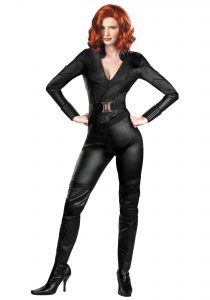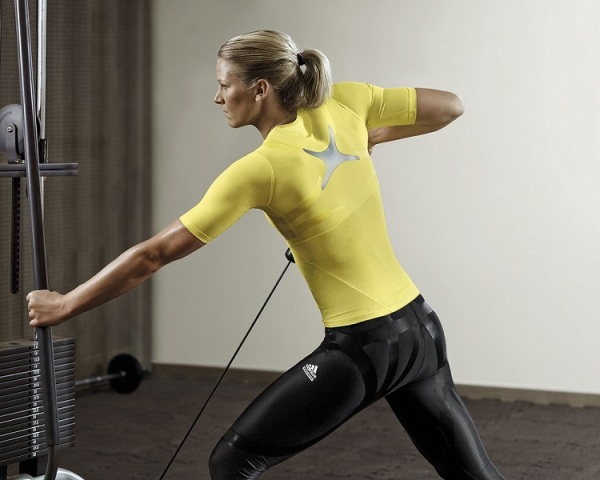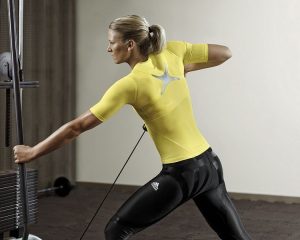We begin this week with a comment from reader Nathan Pallaske (Oisvorfer’s webmaster advises that he is to be found somewhere in Wilmington, DE) who wrote azoy:
From: Nathan Pallaske
Dear Ruv
Let’s see if you can answer this one, the parsha clearly stated last week you will not add and you will not subtract from the mitzvos. yet we keep adding to the mitzvos non-stop, more tefillins, more fasts, who knows what else. how do we reconcile a clear command not to add and yet these rabbi’s keep doing just that?.
Appreciate the posts.
Nathan: Your question has plagued the Oisvorfer and many others for decades and generations. It is worthy of a response, ober not this week when he was busy with shul politics, a bout of dizziness and other zachin. Your comment will be addressed in the coming weeks.
Raboyseyee and Ladies:
Spandex in the Midbar?
Spandex in the Midbar? What has spandex to do with our parsha and the midbar? We will address these questions soon, halt zich eyn (a shtikel patience please).
A few years back, ich veys, let’s say in the year 2012 or so, as the Oisvorfer’s waist began to expand, he discovered pants which contained an elastic waistband; they stretched an inch or two when needed. Back then, only one or two brands offered them and they were quite givaldig. Ober, long before 2012, in fact way back in 2488, the year the Yiddin were finally going to make it over -after a 40 year stint in the midbar (desert)- to the Promised Land, we find mention of magic clothing. They seemingly stretched and were also self-cleaning. Moreover they were made to last. And we read about them where? In this week’s parsha of Eikev, let’s begin there. Ober ershtens, speaking of stretch pants, let’s instead begin with a follow up to last week’s rant about the big guy, and the A/C in shul caper.
Shoin. It’s one week later and here’s the update to the story many of you commented on and wanted to hear more about: the A/C event which took place on shabbis, Tisha Be’ov mamish on the calendar but pushed off this year until the 10th. The big guy ran out of shul and was not seen all week. Ober, there he was on Friday night as the crowd assembled for Mincha at 7PM. In honor of Shabbis Nachmu, the entire congregation was invited to a festive seudah (meal). When food is free, avada one can expect a large turnout. Word began to spread that the big guy was going to speak, he was to address the oilom (crowd) regarding his outburst the previous shabbis. And taka, that’s what happened. The Gabbai introduced him. And he said what? The emes is that he spoke quite well beginning his public apology speech with a story dating back to his childhood, and then wove that story into his words of regret. He accepted responsibility for his behavior, apologized to the individual whom he had labeled and called a Nazi, as well to the entire shul. He has been restored. Ober what took place behind the scenes? Was the apology coerced? What motivated him? Was it sincere? Nu, if you read last week’s review, you might recall that the big guy with the self proclaimed breathing issue, is an excellent Ba’al koreh (Torah reader). Ober following the outburst, and after some outside pressure on the gabbi -he with but one desire in life: to be liked by everyone- who was guilty the previous week of deafening silence, this week, he sprang into action -so he claims- and told the offender that he could no longer read for the congregants unless and until he apologized. Shoin! With the tyvo (strong desire) to read from the Torah still burning, he accepted the conditions. Ober was he really sorry? Perhaps not! As late as Thursday evening, and knowing he was scheduled to apologize, in a private conversation with another Yid, he again invoked the term Nazi when discussing the gentleman whom he had aggrieved. Vyst zich ois az nisht (seemingly), the apology was but lipstick on the pig. Bottom line: Yiddin don’t get along and Moshiach isn’t any closer to coming.
 Because it follows Vo’eschanan which featured a second chance to hear the Aseres Hadibrois (Ten Commandments) and also the first paragraph of the Shema, Parshas Eikev, which we will read this coming shabbis, may at first glance seem a shtikel boring. That is not the case, not at all. In addition to the second paragraph of the Shema, in Eikev we will find one of the greatest lines ever uttered by Moishe to the Yiddin. Nu, zug shoin (tell me already), what did he say? Halt zich eyn (keep your pants on), we’ll address that in mamish one minute. Eikev, as we have mentioned previously (see archives at www.oisvorfer.com) is also the source for bentching (reciting grace after meals) though avada not in the format as we know it today. And taka just yesterday, though it’s a weekday when most of you giferliche bums don’t even have a hava-mina (first thought) about benching, the Oisvorfer, uncharacteristically, not only washed for bread but also benched (parts) following the meal and readily admits that it wasn’t too many years ago when he first chapped that benching is a mitzvah D’oirayso (biblically commanded) whereas washing one’s hands before eating bread was only instituted by the rabbis. Of course the benching as we know it today does not at all resemble the under ten words the heylige Toirah uses to describe the mitzvah. Then again, few mitzvois resemble their first appearance in the heylige Toirah. Azoy iziz (that’s how it is).
Because it follows Vo’eschanan which featured a second chance to hear the Aseres Hadibrois (Ten Commandments) and also the first paragraph of the Shema, Parshas Eikev, which we will read this coming shabbis, may at first glance seem a shtikel boring. That is not the case, not at all. In addition to the second paragraph of the Shema, in Eikev we will find one of the greatest lines ever uttered by Moishe to the Yiddin. Nu, zug shoin (tell me already), what did he say? Halt zich eyn (keep your pants on), we’ll address that in mamish one minute. Eikev, as we have mentioned previously (see archives at www.oisvorfer.com) is also the source for bentching (reciting grace after meals) though avada not in the format as we know it today. And taka just yesterday, though it’s a weekday when most of you giferliche bums don’t even have a hava-mina (first thought) about benching, the Oisvorfer, uncharacteristically, not only washed for bread but also benched (parts) following the meal and readily admits that it wasn’t too many years ago when he first chapped that benching is a mitzvah D’oirayso (biblically commanded) whereas washing one’s hands before eating bread was only instituted by the rabbis. Of course the benching as we know it today does not at all resemble the under ten words the heylige Toirah uses to describe the mitzvah. Then again, few mitzvois resemble their first appearance in the heylige Toirah. Azoy iziz (that’s how it is).
The entire parsha is a continuation of one of Moishe’s last speeches, this the second of three; he will die immediately thereafter. The news appears to be pretty good. After 40 years of valgering in the midbar and after many shenanigans, many of which caused the RBSO to act out by thinning out the population considerably, the new generation of Yiddin, plus the women and children, were finally poised to cross the Jordan and make their way into the Promised Land. One medrish will tells us that other than Miriam, not one woman died during the 40 year excursion. Ober, were they land worthy? Seemingly not!
In any event, though we have previously covered Eikev eight different times, this one possik we’re about to read was never before noticed but is in focus this week. Its words jumped off the page and said read me; again and again. This, Raboyseyee, is a most amazing quote from no lesser a giant among men than Moishe Rabaynu himself. Said he to the Yiddin (Devorim 9:1-7) azoy: “Listen Israel, today you are about to cross the Jordan to conquer and inherit the land of the nations greater and stronger than you, cities enormous and fortified up to the heavens; a people big and tall, sons of giants whom you know (and who inspire fear in all around them); know that you will conquer them, but not because you deserve it! Remember; don’t forget how you angered the Lord in the desert.”
 Did you hear that? The Yiddin were still not land worthy. Were they ever? Seemingly, though not land worthy, the news was still good! Moishe will go on to tell the Yiddin that though their behavior was at times less than admirable and at other times quite despicable, the nations that were at the time occupying that very land were much worse. Shoin! He continues and says: “It is not because of your virtues and rectitude that you will be able to possess their country; but it is because of their wickedness that the Lord your G-d is dispossessing those nations before you, and in order to fulfill the oath that the Lord made to your fathers… ” Moishe will then, as do our wives, become historical and remind the Yiddin of their various and frequent defiance in the RBSO’s ways. Seemingly, Moishe’s intent was to have the Yiddin acknowledge that they were taka not land worthy and that it was only due to the benevolence of the RBSO and His promise to our forefathers which was allowing them entry.
Did you hear that? The Yiddin were still not land worthy. Were they ever? Seemingly, though not land worthy, the news was still good! Moishe will go on to tell the Yiddin that though their behavior was at times less than admirable and at other times quite despicable, the nations that were at the time occupying that very land were much worse. Shoin! He continues and says: “It is not because of your virtues and rectitude that you will be able to possess their country; but it is because of their wickedness that the Lord your G-d is dispossessing those nations before you, and in order to fulfill the oath that the Lord made to your fathers… ” Moishe will then, as do our wives, become historical and remind the Yiddin of their various and frequent defiance in the RBSO’s ways. Seemingly, Moishe’s intent was to have the Yiddin acknowledge that they were taka not land worthy and that it was only due to the benevolence of the RBSO and His promise to our forefathers which was allowing them entry.
And with but two weeks to go before Choidesh Ellul rolls in and with Rosh Hashono and the ‘aseres yimay teshuva’ rapidly approaching, let’s keep that in mind: you are taka bad but there are many others who are much worse. Seemingly, when being judged it may all depend against whom. This may be your best defense. Are you and your myriad bad deeds standing alone in judgment or are you being compared to someone else? Ver veyst? And more good news: it can all be turned around before Yom Kippur gets here.
Let’s get back to those magical stretch pants. In order to chap what Moishe was telling the Yiddin, lommer lernin (let’s learn) posik daled in perek ches (8:4) innaveynig. Says the heylige Toirah, azoy: “Your garments did not wear out upon you (remember these last two words) and your feet did not swell, these forty years.” Why was Moishe talking about garments and feet? Nu, as you will or should recall, Moishe, who began pontificating in Parsha Devorim, is still speaking. This week he is giving a charge to the graduating class of 2488, those now destined to enter the Promised Land. He is alternatively reminding them of their poor behavior and at the same time telling them that the RBSO still has their backs. Seemingly their feet as well. Ober what do these words mean? Nu, let’s see what Rashi, who knew more about everything than anyone else, has to say.
What’s pshat that their clothing did not wear out? Was the durability of the clothing a natural phenomenon? Or, was this a ness min hashomayim (miracle)? Says Rashi: the clouds of Glory (the ahnaney hakovoid) would rub their clothes and whiten them -think bleaching- making them look -at all times- like freshly whitened garments. You hear this raboyseyee? Is the RBSO great or what? Not just did the clothing always look clean and crisp, bleach too was provided by the magical clouds of glory. Moreover says Rashi: “Likewise, their young, as they would grow, their clothing would grow with them.” OMG! Why it took until 2012 for manufactures to chap this concept, ver veyst. Remember those two words from posik daled, “upon you?” Says the Mizrachi: not just did the RBSO provide clouds which washed and bleached their clothing, the entire process took place while the Yiddin were fully dressed and wearing their clothing. We need to assume that washing machines did not exist in the midbar. Then again, who needs a washing machine or a Chinese laundry, when one has the RBSO taking care of all their laundering needs which included washing, bleaching, and the stretching of clothing and shoes? And Rashi knows this how and from where? From the posik we read earlier and specifically from the two words “upon you”. The entire magical washing -including bleaching- took place while the Yiddin either slept or went about their daily routines. Gishmak, ober, does everyone agree? Of course not!
 Says the Ibn Ezra: the reason the clothing always looked clean and did not wear out is quite simple: as they left Mitzrayim (Egypt), they packed many sets of clothing. In other words: no miracles were involved. This pshat makes some sense. Why? When was the last time you saw Yiddin travel without sufficient clothing? How many outfits and different pairs of shoes does your wife take along for a weekend bar mitzvah? Let’s not even get started on packing for Pesach away at any of the myriad kosher hotels all over the world. Can you imagine what and how much was packed for a 40 year trek through the midbar on the way to the Promised Land?!
Says the Ibn Ezra: the reason the clothing always looked clean and did not wear out is quite simple: as they left Mitzrayim (Egypt), they packed many sets of clothing. In other words: no miracles were involved. This pshat makes some sense. Why? When was the last time you saw Yiddin travel without sufficient clothing? How many outfits and different pairs of shoes does your wife take along for a weekend bar mitzvah? Let’s not even get started on packing for Pesach away at any of the myriad kosher hotels all over the world. Can you imagine what and how much was packed for a 40 year trek through the midbar on the way to the Promised Land?!
Ober says the Ramban (Nachmanides), farkert: the fact that the Yiddin’s clothing did not get sullied, but did stretch along with them as their children grew, and that their feet did not swell up as they walked, was indeed miraculous. And let’s not forget that in wasn’t until 1959 that DuPont scientist (Joseph C. Shivers) invented Spandex (taka a miracle for a number of the more zaftig girls and their mothers). In other words: self cleaning and stretchable clothing was indeed a miracle from the RBSO, one that He hid from Mr. Shivers over at DuPont until 1959, and from other Toirah inspired entrepreneurs, who typically find ways to exploit all the RBSO’s miracles.
 The miracle was so great that Moishe will again remind the Yiddin (Devorim 29:4), a few days before his passing, about the miracles of stretchable clothing and shoes which did not wear out for 40 years. We will be revisiting this topic later this summer as we review parshas Ki Sovoy, stay tuned.
The miracle was so great that Moishe will again remind the Yiddin (Devorim 29:4), a few days before his passing, about the miracles of stretchable clothing and shoes which did not wear out for 40 years. We will be revisiting this topic later this summer as we review parshas Ki Sovoy, stay tuned.
This week an exasperated Moishe, having tried every other tactic known to man, will resort to bribing the Yiddin to do the right thing and to believe in the RBSO. Is bribery allowed? Seemingly it is. Though he has tried and (mostly) failed miserably to reign in their erratic behavior toward the RBSO, he doesn’t give up and this week he’s back with a shtikel new tactic. He will bribe the Yiddin ober not with cash. Instead, he will offer brochos (blessings,) and why not? Seemingly it worked, for a while anyway and ever since, the promise of brochos has become a real enterprise. It’s big business mamish with little risk. There’s no inventory and not much overhead. And bazman hazeh (in our times) many taka do this for a living. Rebbes and Mikubolim (Kabbalists who accept/demand lots of money for blessings), are aplenty and can today be found practicing their craft in all corners of the world. Some have specialties like baby making, and curing various illnesses, even cancer, while others specialize in business opportunities. Some are general practitioners. You just need to believe. Ober says the Oisvorfer that it’s efsher better to rely on the RBSO. His track record is better. It’s also a cheaper option.
A gittin Shabbis –
The Heylige Oisvorfer Ruv
Yitz Grossman

